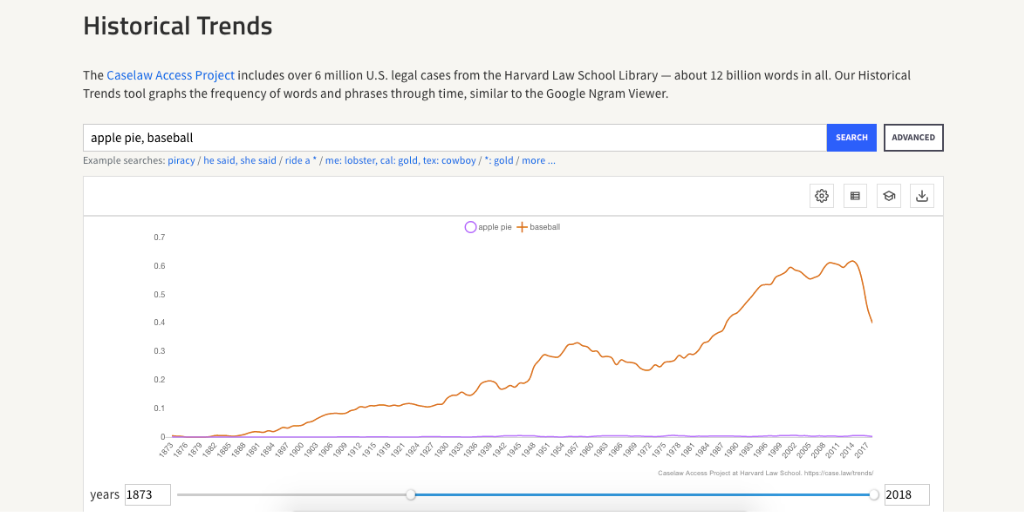Authors:
Published:
Today we’re excited to share Historical Trends, a new way to explore U.S. case law made available by the Caselaw Access Project at Harvard Law School.
Historical Trends is a way to visualize word usage in court opinions over time. We want Historical Trends to help you ask new questions and understand the law in new ways. Let’s see how this works with some examples:
- Compare the frequency of “compensatory damages” and “punitive damages” in New York and California.
- Find the top phrases starting with “influence of”.
- See which states most frequently reference the Fifth Amendment.
- Compare “privacy” with “publicity”.
Want to build your own visualization? Here’s how to get started:
- Let’s say you have a question about produce. You want to know if apples, bananas, or oranges are more commonly shown in the legal record.
- Try it: go to https://case.law/trends/ and enter one or more keywords separated by a comma. For now, let’s try “apple”, “banana”, and “orange”.
- Refine your query or learn more by selecting “Advanced” or the gear icon shown above the visualization.
- Select “Graph”.
The data underlying Historical Trends is drawn from the Harvard Law Library’s collection of roughly 6.7 million official, published opinions issued by state and federal courts throughout U.S. history and made available as part of the Caselaw Access Project.
Get started at https://case.law/trends/.
